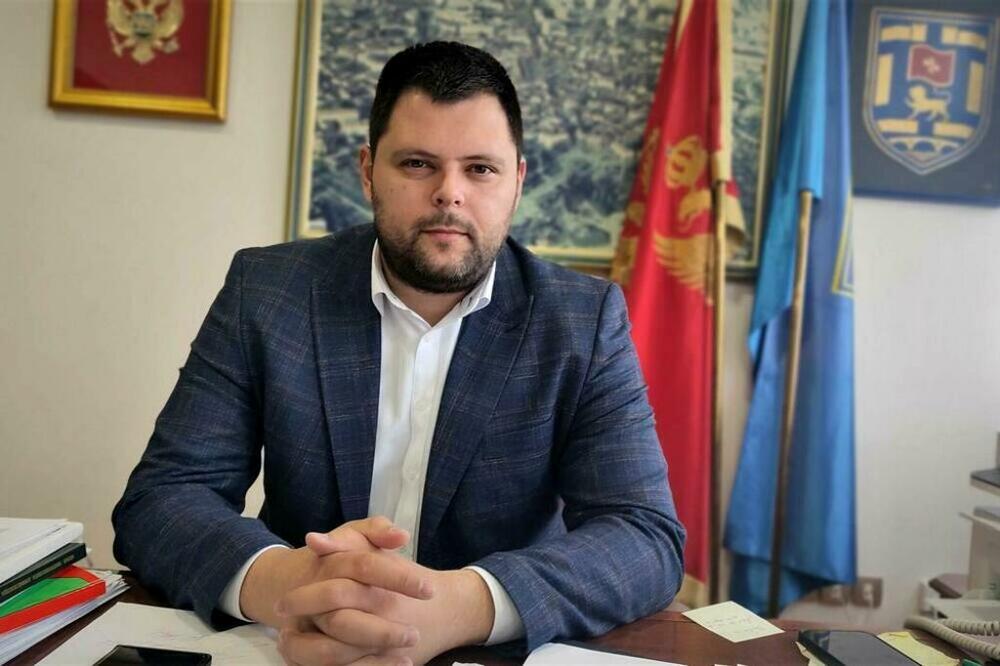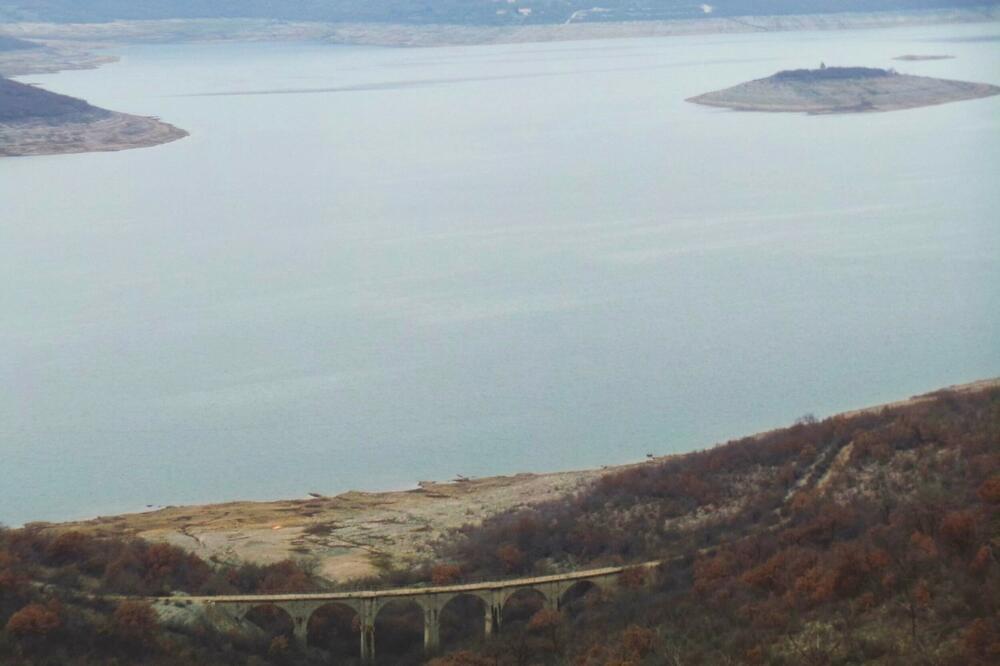The decades-long unresolved issue of the valorization of the water potential of Bileć Lake, as they hope in the Government, but also in the local administration of Nikšić, on whose territory part of the lake is located, could begin to be resolved this year.
Due to the formation of the Bileć Lake, with an area of 33 square kilometers, more than five million square meters of the territory belonging to the municipality of Nikšić was submerged, when several villages were relocated. During the former Yugoslavia, Nikšić received monetary compensation from Bosnia and Herzegovina for submerged land, which has not been paid since the collapse of the state in 1992, and is now paid to the municipalities of Bileća and Trebinje.
As the Minister of Energy and Mining Saša Mujović recently said, the best solution to the dispute over Bileć Lake is the formation of a joint group between Montenegro and Bosnia and Herzegovina, Republika Srpska, which would determine what a compromise measure would be satisfactory for both side.
The President of the Municipality of Nikšić, Marko Kovačević, told "Vijesti" that Minister Mujović's idea of forming a joint group is expedient and that it can produce results.
"The situation regarding the possible compensation to the Municipality of Nikšić can probably be resolved in an easier way, and it would be appropriate to resolve that part of the story about Bilećko Lake as soon as possible, and for the commission, which would eventually be formed, to resolve the other more complex problems that exist around that issue ", Kovačević said.

According to an earlier study, which was done for the needs of the Government of Montenegro in 2005 by experts from the Government and the University of Montenegro, 24 percent of the territory on which Lake Bilećko is located belongs to Montenegro, along with 40 percent of the water basin.
In his reply to the "News", Mujović said that, based on the fact that the unresolved issue of the Bileć Lake burdens the good-neighborly relations with the Republic of Srpska, he sent a letter to Petar Đokić, the Minister of Energy and Mining there, reminding them that they were in Belgrade at the beginning of March, during a trilateral meeting , had a correct conversation and expressed understanding.
"The Bileć Lake issue is a test of our joint capacity and ability to cooperate, to resolve disputed issues by agreement, with full respect and understanding. Let's be that political force that created a solid foundation for even closer relations of generations to come," the minister's letter to Đokić states.
In the letter, he recalled the documents related to the "reasonable and fair use of water", the Helsinki rules on the use of the waters of international rivers and the UN Convention on the right of non-navigable uses of international watercourses, and emphasized his firm conviction that Montenegro is entitled to compensation for the use of the reservoir Bileć lake.

"Montenegro has never given a written consent to submerge its territory with the waters of Lake Bileć, and its representative in the Commission for the reception of the hydropower system of HPP 'Trebišnjica' has reserved the right for Montenegro to subsequently submit a request for the protection of its interests," Mujović's letter reads.
The Electric Power Company of Montenegro (EPCG) said that based on the previously calculated division of the hydropower potential of Lake Bileć, Montenegro has the right to use 20,21 percent of the potential, that is, 13,60 cubic meters per second.
"According to the orientation data of the Ljubljana Electroprojekt Studio from 1973, Montenegro lost five billion kilowatt-hours (KWh), and according to the data of Energoprojekt-Hidroinženjering from 2000, three billion kWh were lost," writes EPCG in its response to "Vijesta", reminding that Montenegro did not participate in the financing of the construction of dams and other facilities of the HPP "Trebišnjica" system, and that the final solution must be sought in the appropriate negotiation process.
As they pointed out, Eletroprivreda, when it comes to solving that problem, fully relies on the views of the line ministry, and the amount of compensation will be a topic for negotiations.
"We believe that each side should strive for a solution that is satisfactory for all participants in the process, noting that EPCG, in cooperation with the Ministry of Energy and Mining, would participate in preparing a strategy for negotiations."
They remind us that for 58 years, Montenegro has not exercised its rights in relation to the downstream power plants, which are four power plants that are part of the "Trebišnjica" HPP.
The "Trebišnjica" hydropower system, which was built on the lake in 1967, has four hydropower plants, three of which are owned by Elektroprivreda Republika Srpska, while the electricity produced from the fourth is shared with Elektroprivreda Hrvatska, because that country participated in the construction of the system.
"Piva" does not threaten Goražde
As Minister Saša Mujović recently said, the Republika Srpska claims that the Piva hydroelectric power plant threatens part of their territory and causes floods.
"In the Municipal Court in Goražde, litigation proceedings were and are still being conducted based on the lawsuits of the City of Goražde, legal entities and natural persons, against the defendant Elektroprivreda Crne Gore AD Nikšić, for damages based on objective responsibility for performing dangerous activities, and in connection with the flood wave on to the Drina River since December 2010, due to the alleged inadequate management of HPP Piva. In the aforementioned cases, the necessary expert reports were conducted by experts of the respective professions, in order to determine the cause-and-effect relationship between the activities of EPCG and the damage caused to the property of the plaintiffs", the EPCG response states.
The Montenegrin Energy Company refers to the analyzes of the Faculty of Civil Engineering in Belgrade, which, unlike individual experts, finds that there is no cause-and-effect relationship, while the Faculty of Civil Engineering and Geodesy of the University of Ljubljana finds that the influence of the defendant due to the operation of HPP Piva is only 9 - 11 centimeters in relation to the total water level due to the flood wave, which in some localities exceeded two meters, and the flood wave itself, according to their findings, would have occurred in any case with or without HPP Piva.
"Despite this, the competent courts in BiH, as a rule, issue verdicts that approve the claims and oblige the defendant to pay the plaintiffs the amounts of damages determined in the proceedings," concluded the EPCG.
Bonus video:




